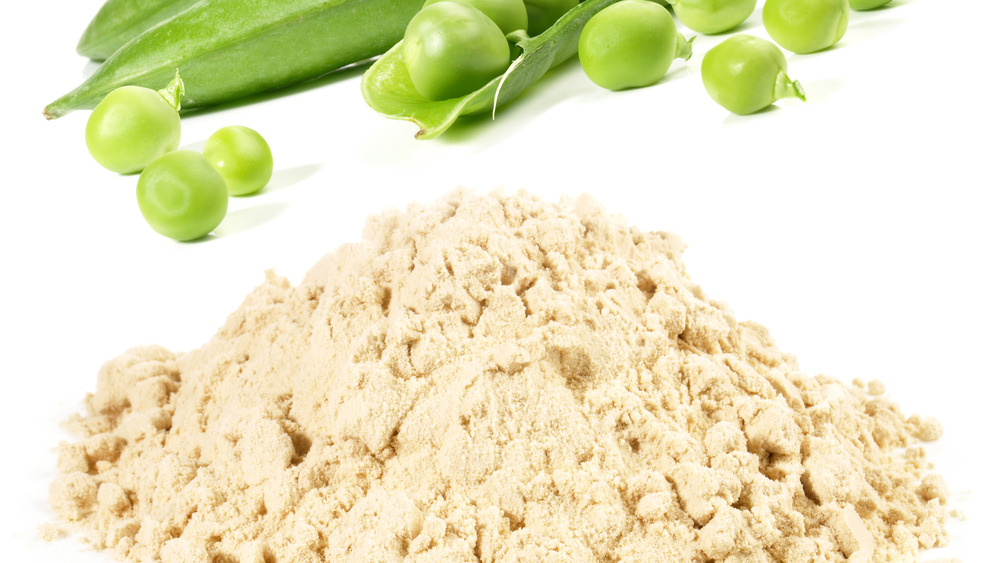What Is Pea Protein And How Healthy Is It?
You've likely heard of whey protein, and possibly even soy protein, especially if you're in the fitness world and are frequently hearing about post-workout recovery shakes. But in recent years, pea protein has been growing in popularity as soy becomes less popular as the optimal vegan option. Is pea protein powder worth swapping out your whey? Here's what the research is saying.
Pea protein is exactly what it sounds like: It's the protein extracted from that Thanksgiving classic, split peas. That's right, meat and dairy aren't the only sources of protein: Plants actually contain small amounts of protein, and a pea protein powder is just the protein element from the peas. While pea protein does contain all nine essential amino acids — the building blocks of protein — that your body needs, it is low in one of them, methionine (via the American Institute for Cancer Research). This means you'll want to eat other protein-packed foods throughout the day in addition to pea protein.
How do you pick a pea protein supplement?
Not all supplements are created equal: Some pea protein powders are packed with sweeteners, and others even contain unhealthy trans fats, while some don't actually have a full optimal 20-gram serving of protein in each scoop. So it is important to check the label before you buy.
"When looking for a high-quality pea protein powder, it's also wise to avoid artificial sweeteners such as aspartame, sucralose, and acesulfame potassium," registered dietitian Britni Thomas told Shape.
As with any supplement, it's important to remember to look closely at the label for these added fillers, sweeteners, and other ingredients that you're hoping to avoid. Only buy pea protein from trusted sources, since like other supplements, it isn't FDA regulated (via the Food and Drug Administration). And don't rely on supplements like pea protein for your entire diet: Whole, real foods are important!


